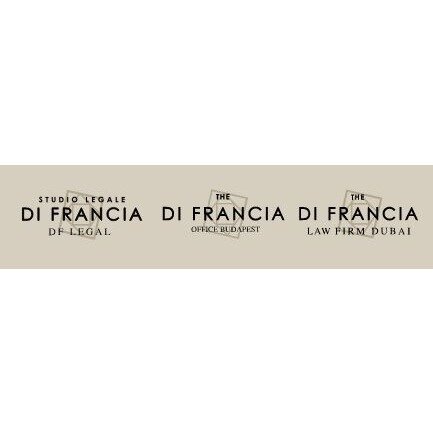Best Project Finance Lawyers in Bologna
Share your needs with us, get contacted by law firms.
Free. Takes 2 min.
List of the best lawyers in Bologna, Italy
About Project Finance Law in Bologna, Italy
Project finance is a specialized area of law and finance focusing on the funding of large-scale projects such as infrastructure developments, renewable energy installations, industrial plants, and public facilities. In Bologna, Italy, project finance plays a significant role in supporting the growth of public-private partnerships, urban development, and modernization of local infrastructure. The city, known for its vibrant economy and academic legacy, often requires innovative financing structures that mobilize both public and private sector investments. Project finance law in Bologna covers the structuring, negotiation, and implementation of funding and operation models, ensuring risk is allocated appropriately among all stakeholders.
Why You May Need a Lawyer
Navigating project finance in Bologna can be complex due to the intricate legal and regulatory environment. You may require legal assistance in situations such as:
- Structuring joint ventures and public-private partnerships for infrastructure or energy projects
- Negotiating and drafting contracts, including concession agreements, loan agreements, and security packages
- Understanding compliance requirements and due diligence for financing transactions
- Dealing with permitting and environmental regulations affecting the project
- Advising on tax implications for sponsors and lenders
- Resolving disputes between stakeholders, contractors, or regulatory authorities
- Managing the legal aspects of cross-border investment or funding
- Securing collateral or ensuring proper risk-sharing mechanisms are in place
Given the high value and multifaceted nature of such projects, having a specialized lawyer can safeguard your interests and ensure legal compliance throughout the project's lifecycle.
Local Laws Overview
In Bologna, project finance operates within the broader framework of Italian and European Union laws, but there are local aspects to consider:
- Public Procurement Laws - Italy’s procurement code (Codice Appalti) governs the tendering and awarding of public contracts, affecting how project finance deals are structured.
- Administrative Authorizations - Local authorities in Bologna may have particular requirements and procedures for granting permits and concession rights.
- Environmental Regulations - Projects are subject to Italian and European environmental impact assessments, requiring careful legal review and compliance.
- Municipal Regulations - Bologna’s city council may pass ordinances that affect project implementation, especially in historic or protected areas.
- Taxation - Specific tax rules may apply on both a national and regional level for project revenue, asset transfers, and asset holding.
- Financing Laws - Italian banking and securities laws regulate fundraising methods, the creation of security interests, and investor protections.
It is crucial to understand how these laws intersect and how local practices may influence the structuring and operation of your project.
Frequently Asked Questions
What is project finance and how is it different from traditional financing?
Project finance involves funding projects based on their expected cash flows and assets rather than the general creditworthiness of the project sponsors. The financing is often non-recourse or limited recourse, meaning lenders have limited claim against sponsors if the project fails.
What types of projects commonly use project finance in Bologna?
Projects in sectors such as renewable energy, transportation infrastructure, hospital construction, water management, and urban development are commonly financed through project finance structures in Bologna.
How are risks typically allocated in a project finance transaction?
Risks are usually allocated to those parties best able to manage them. This involves detailed contractual arrangements between sponsors, lenders, contractors, and public authorities, addressing construction risks, operational risks, regulatory risks, and market risks.
Is project finance possible for small-scale initiatives or only for large projects?
While project finance is more common for large-scale investments due to the costs and complexity involved, some medium-sized projects, particularly in the energy sector, may also successfully use this structure.
What are the key documents in a project finance deal?
Key documents typically include the concession agreement, loan and credit agreements, security documents, shareholder agreements, project contracts (such as Engineering Procurement and Construction contracts), and direct agreements with lenders.
What is the role of public authorities in project finance in Bologna?
Public authorities may sponsor projects, grant concessions or permits, provide guarantees, and participate in public-private partnerships, particularly for infrastructure and community service projects.
Are there particular challenges for foreign investors?
Foreign investors often face challenges related to navigating Italian administrative procedures, understanding local legal requirements, securing approvals, and addressing tax issues.
How long does the approval process usually take?
The approval timeline varies depending on project complexity, sector, and the need for public procurement. It can take several months to a few years, especially for projects requiring extensive environmental or public consultation.
Do I need approval from both national and local authorities?
Yes, most projects require both national and local permits and approvals, particularly for zoning, construction, environmental compliance, and utility connections in Bologna.
What should I look for when choosing a project finance lawyer in Bologna?
Look for a lawyer with experience in project finance, knowledge of both local and national laws, a track record working with public and private entities, and the ability to manage cross-border or multilingual transactions if relevant.
Additional Resources
These organizations and authorities can provide valuable information or support for your project finance needs in Bologna:
- Emilia-Romagna Region - Department of Economic Development
- Municipality of Bologna - Economic Development and Urban Planning Office
- Chamber of Commerce of Bologna - Business and Trade Information Services
- Italian Banking Association (ABI)
- Italian Ministry of Economy and Finance - Infrastructure Section
- Autorità Nazionale Anticorruzione (ANAC) - Supervision of Public Contracts
- Professional local law firms specializing in project finance
- Trade associations representing sectors such as construction, energy, and public services
- Industry events, seminars, and networking opportunities offered by local universities and business incubators
Next Steps
If you are considering project finance in Bologna or are already involved in a project, here are the recommended next steps:
- Clearly define your project goals and identify potential stakeholders
- Conduct an initial assessment of legal, regulatory, and financial feasibility
- Consult with a qualified project finance lawyer experienced in the Bologna and Italian market
- Gather all necessary documentation and information about the project
- Initiate contact with local authorities or relevant governmental bodies early in the process
- Ensure full compliance with local procurement, environmental, and permitting requirements
- Negotiate and draft key contracts with the guidance of your legal advisor
Taking early legal advice will help you avoid costly mistakes and streamline the progression of your project from concept to reality.
Lawzana helps you find the best lawyers and law firms in Bologna through a curated and pre-screened list of qualified legal professionals. Our platform offers rankings and detailed profiles of attorneys and law firms, allowing you to compare based on practice areas, including Project Finance, experience, and client feedback.
Each profile includes a description of the firm's areas of practice, client reviews, team members and partners, year of establishment, spoken languages, office locations, contact information, social media presence, and any published articles or resources. Most firms on our platform speak English and are experienced in both local and international legal matters.
Get a quote from top-rated law firms in Bologna, Italy — quickly, securely, and without unnecessary hassle.
Disclaimer:
The information provided on this page is for general informational purposes only and does not constitute legal advice. While we strive to ensure the accuracy and relevance of the content, legal information may change over time, and interpretations of the law can vary. You should always consult with a qualified legal professional for advice specific to your situation.
We disclaim all liability for actions taken or not taken based on the content of this page. If you believe any information is incorrect or outdated, please contact us, and we will review and update it where appropriate.














